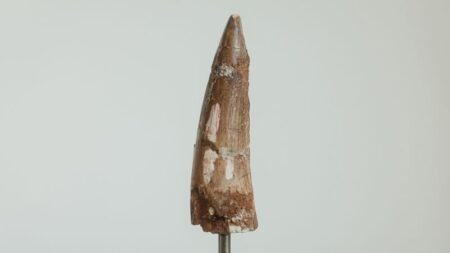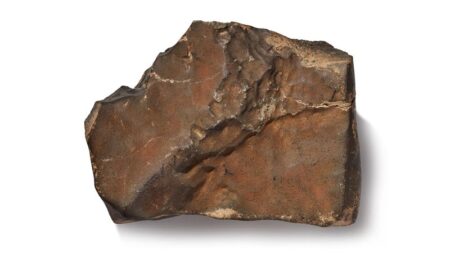The fascinating intersection of artificial intelligence (AI) and ancient history is exemplified by the recent advancements in decoding the Herculaneum scrolls. These scrolls, once thought to be irretrievably damaged by the eruption of Mount Vesuvius in 79 AD, are now being carefully deciphered using modern technology. With over two thousand characters successfully rendered legible through high-resolution X-ray imaging and intricate AI algorithms, researchers are beginning to unveil the first coherent insights into these ancient texts, the contents of which originate from a site believed to be the home of Julius Caesar’s father-in-law.
This breakthrough is part of the ambitious Vesuvius Challenge, a project aimed at unlocking 90% of four specific scrolls by the end of 2024. A key aspect of this challenge lies in the technical hurdles that researchers face in virtually flattening the carbonized papyri and extracting readable text from the indistinguishable black ink. Professor Brent Seales, a pioneer in this field, emphasizes how AI technology amplifies our ability to reveal hidden evidence of the ink embedded within complex carbonized patterns. This innovative application of AI not only enhances the understanding of ancient texts but also demonstrates the immense potential of AI as a transformative tool in various scientific endeavors.
In 2024, the Nobel Committee celebrated the strides made in AI, recognizing John Hopfield and Geoffrey Hinton for their instrumental contributions to machine learning. This recognition solidified AI’s growing importance in scientific research, as the field increasingly adopts AI methods to analyze vast datasets and gain new insights. However, alongside this potential, there are inherent risks associated with AI, particularly its tendency to replicate existing biases in decision-making systems that affect hiring and law enforcement. The dual-edged nature of AI needs to be acknowledged as researchers navigate its use in complex and sensitive areas.
AI’s transformative power has been particularly notable in scientific discovery. Research papers that employ AI techniques are more likely to be cited and regarded as essential by scientists, as revealed by a survey conducted by Nature. Still, concerns remain regarding the “black-box” nature of many AI tools, which can obscure the ability to reproduce results. Despite these concerns, Professor Seales and others advocate for the careful deployment of AI, asserting that it acts like a superpower that unveils patterns that human eyes might miss.
AI’s revolutionary impact extends beyond historical texts. For instance, researchers are now utilizing AI to unlock the intricate communication systems of marine life, particularly sperm whales. Machine learning algorithms have been deployed to analyze thousands of recorded clicks and codas from whales, revealing a complex potential for interspecies communication that mirrors human phonetics. This groundbreaking research not only enhances our understanding of marine biology but may ultimately enable humans to communicate with these enigmatic creatures.
Similarly, AI technologies have gained traction in archaeology, as seen in the case of Peru’s Nazca Desert. Researchers, led by Professor Masato Sakai, employed AI models to detect previously unknown geoglyphs, dramatically increasing the recorded number of sites. Although these AI models have limitations and often yield many false positives, the potential for future research remains vast and promising.
Additionally, the world of molecular biology is being transformed using AI tools like AlphaFold, which predicts protein structures based on amino acid sequences. This innovation has enormous implications for understanding life at a molecular level, allowing researchers to access predicted models of virtually all known proteins quickly. AI’s role in developing therapeutic solutions, including new antibiotics to combat drug-resistant bacteria, showcases its life-saving potential.
In conclusion, the integration of AI in various scientific fields heralds a new epoch in knowledge discovery, allowing humankind to uncover secrets of both the past and the intricacies of life itself. From decoding ancient scrolls to exploring communication in the depths of the ocean and unraveling the molecular fabric of life, AI serves as a powerful catalyst for innovation. Each breakthrough reinforces the need for responsible stewardship of AI technologies and highlights the importance of interdisciplinary collaboration to harness these advancements for the collective benefit of society.











